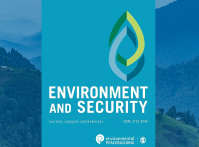The land of Niger’s
Tuareg Bedouin tribes—and thus the Tuareg way of life—is drying up. The steadily advancing Sahara desert is swallowing northern Niger at a rate of six kilometers per year, part of a centuries-old process recently accelerated by climate change and groundwater withdrawals by the nation’s booming uranium mining industry.
French nuclear giant Areva flies in workers rather than hiring locals to man the mines, and as a result, the Tuareg and other tribal groups have little or no opportunity to find employment. Cut out of the revenue stream, rebel fighters, made up of Tuaregs as well as members of other Bedouin tribes, are demanding a percentage (20-30 percent, by most accounts) of the revenue generated by the uranium mined on their land.
Defying a government ban on reporting on the conflict, Al Jazeera television reporter May Welsh interview the rebels in a five-part video series on the Tuareg. “They’re fighting a state that’s ignoring their problems,” she says. For example, a family suffering from a new and mysterious ailment claim they have been denied care by Areva’s medical offices. Welsh suggests their illness could be attributed to the radioactive water around Areva’s facilities.
Areva, for its part, rejects the notion that it is poisoning the people of northern Niger. In a document released in August 2007, the company reports that 60-70 percent of its private hospital patients are members of surrounding communities. Areva also states it gives preference to local sub-contractors in its exploration and procurement activities. But the yawning gulf between Areva’s position and the reality in northern Niger belies the company’s claims.
Conflict between rebel groups and the Nigerien army has separated families, displaced people, destroyed schools—and interfered with humanitarian missions. The government ordered the French NGO Medecins Sans Frontieres (MSF) to suspend its activity in Niger based on unsubstantiated suspicions that members of the organization were colluding with rebels. Welsh’s daring reports illuminate these and other dangers of life in Niger’s desert, a life that may soon become impossible.
 A Publication of the Stimson Center.
A Publication of the Stimson Center.






